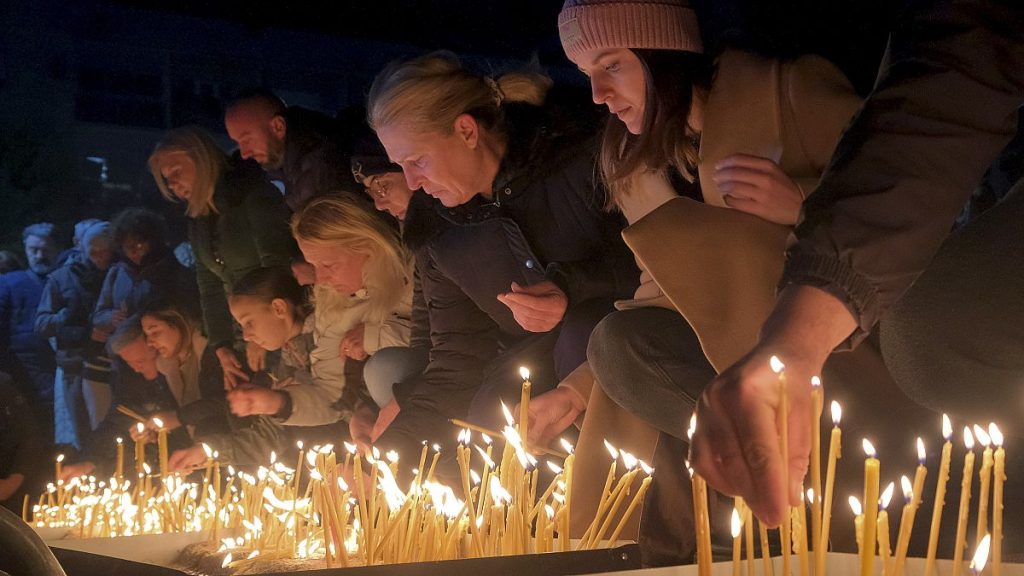The tranquil city of Cetinje, Montenegro, was shattered by a horrific mass shooting on Wednesday, plunging the nation into mourning. A 45-year-old man, identified as Aco Martinović, embarked on a shooting rampage following a bar brawl, tragically ending the lives of 12 individuals, including two children, and wounding at least four others. The assailant ultimately took his own life after being surrounded by police. This devastating incident marked the second mass shooting in Cetinje in just three years, prompting profound grief and introspection within the community and across the country. The attacker’s motives remain unclear, though Police Commissioner Lazar Šćepanović stated the act was neither planned nor organized, describing it as “unpredictable.” He confirmed that most of the victims were known to the shooter, including his sister, further deepening the tragedy’s complexity.
The scale of the tragedy is unprecedented in Montenegro’s recent history, leaving citizens reeling in disbelief and sorrow. A candlelight vigil held in the capital city of Podgorica drew thousands of mourners who gathered to express their collective grief and solidarity with the victims’ families. Expressions of anguish and bewilderment resonated throughout the nation, with many questioning how such a tragedy could occur and reflecting on societal failures that may have contributed to the violence. One attendee at the vigil, Mira Škorić, poignantly expressed the sentiment of many, lamenting the missed opportunities to intervene in Martinović’s life before the tragic event unfolded.
The Montenegrin government responded swiftly to the tragedy, declaring three days of national mourning and canceling all planned New Year’s festivities. Prime Minister Milojko Spajić visited Cetinje on Thursday, expressing his profound sorrow and announcing the government’s intention to tighten gun control regulations. He acknowledged the existing culture of gun ownership in Montenegro, particularly for sporting and hunting purposes, but emphasized the urgent need for stricter criteria for weapons possession. The government is even contemplating a complete ban on certain types of firearms. President Jakov Milatović also expressed his shock and grief over the incident, noting the stark contrast between the intended holiday joy and the overwhelming sadness that had gripped the nation.
The incident has sparked a critical examination of gun control laws in Montenegro, a small Adriatic nation with a population of approximately 620,000. While gun ownership is relatively common, often linked to hunting and sporting traditions, the two recent mass shootings in Cetinje have raised serious questions about the adequacy of existing regulations. The fact that the perpetrator of Wednesday’s shooting had a previous suspended sentence for violent behavior and was appealing a conviction for illegal weapons possession further highlights the complexities of preventing such tragedies. The incident underscores the need for a comprehensive review of gun ownership laws and enforcement mechanisms to ensure public safety.
The tragic events in Cetinje underscore the profound impact of gun violence on communities and the urgent need for preventative measures. While the immediate focus is on supporting the victims’ families and providing psychological support to those affected by the tragedy, the long-term challenge lies in addressing the underlying issues that contribute to such acts of violence. This involves not only strengthening gun control regulations but also investing in mental health services and promoting a culture of non-violence. The repeated occurrence of mass shootings in Cetinje highlights the need for a comprehensive, multi-faceted approach to prevent future tragedies.
The grief and shock that have enveloped Montenegro serve as a somber reminder of the devastating consequences of gun violence. The nation’s response to this tragedy will be crucial in determining its future trajectory. The government’s commitment to reviewing and strengthening gun control laws represents a significant step towards ensuring public safety. However, a truly effective solution requires a collective effort involving not only lawmakers but also community leaders, mental health professionals, and individuals committed to fostering a culture of peace and non-violence. Only through such collaborative efforts can Montenegro hope to heal from this tragedy and prevent future acts of violence.














